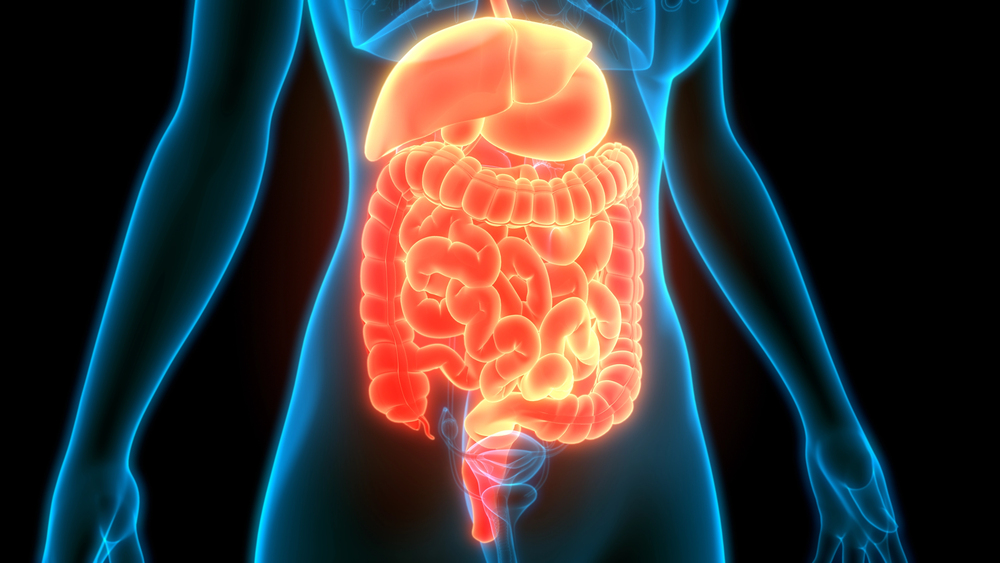Your body is home to an incredible ecosystem of trillions of microorganisms, known as the gut microbiome. These tiny beings are essential for your health – they help digest food, influence your mood, and strengthen your immune system.
Think of your gut microbiome as a busy city where different communities work together to keep you healthy. Research shows that these microscopic residents have an impact on:
- Digestive Health: They break down complex foods and absorb nutrients.
- Immune Function: They train and support your body’s defense system.
- Mental Wellness: They influence brain chemistry and emotional balance.
- Athletic Performance: They enhance energy production and recovery.
By understanding and taking care of your gut microbiome, you can greatly improve your health journey. This comprehensive guide will reveal the fascinating ways in which your microbiome affects your well-being. You’ll discover practical strategies to support your gut health through diet, lifestyle choices, and evidence-based practices.
For example, following menopause-friendly nutrition can ease symptoms during this transition while promoting overall health. Likewise, certain medications like Ozempic can result in prolonged fullness, which comes with its own dietary management tips.
Exploring techniques such as the 96-hour fast could also improve gut health and effectively boost weight loss. It’s crucial to understand the distinctions between medications like Jardiance and Ozempic for informed diabetes care decisions, which you can learn more about here.
Additionally, managing stress is vital for maintaining a healthy gut. Implementing some holistic stress management techniques could significantly enhance both mental and physical well-being.
Are you ready to discover the secrets of your inner ecosystem? Let’s delve into the world of gut health together.
Understanding the Gut Microbiome
Your digestive tract is home to an incredible ecosystem of microscopic life – a bustling community of trillions of microorganisms that make up your gut microbiome. This intricate network consists of:
- Bacteria (both beneficial and potentially harmful)
- Viruses
- Fungi
- Protozoa
- Other microscopic organisms
These tiny residents work in harmony, like a perfectly coordinated orchestra, each playing their distinct role in keeping your gut healthy. The beneficial bacteria assist in breaking down food, producing vital nutrients, and establishing protective barriers against harmful pathogens.
The Importance of a Balanced Gut Microbiome
A balanced gut microbiome is akin to a diverse garden – various species coexist peacefully, contributing to optimal health. When this delicate equilibrium is disrupted, a condition known as dysbiosis can occur, resulting in:
- Digestive Issues
- Bloating
- Gas
- Irregular bowel movements
- Inflammatory bowel disease
- Immune System Problems
- Increased susceptibility to infections
- Autoimmune conditions
- Chronic inflammation
- Mental Health Challenges
- Anxiety
- Depression
- Mood swings
- Brain fog
It’s important to note that certain medications can significantly impact gut health. For example, Ozempic, commonly used for managing Type 2 diabetes, has been linked to potential gastrointestinal side effects including bowel injuries. Therefore, if you’re considering switching from Jardiance to Ozempic, it’s crucial to understand the key considerations involved in such a transition.
The composition of your gut microbiome is as unique as your fingerprint, influenced by factors such as genetics, diet, environment, and lifestyle choices. Research indicates that a diverse microbiome with a high proportion of beneficial bacteria supports better health outcomes, while a less diverse microbiome can increase disease risk.
In some cases, individuals undergoing Testosterone Replacement Therapy (TRT) may also experience changes in their gut health. It’s essential to monitor these changes closely.
For women who are pregnant or planning to conceive, it’s important to note that medications like Ozempic are not considered safe during pregnancy according to recent studies on its effects during pregnancy.
The Gut Microbiome’s Impact on Digestion and Nutrient Absorption
Your gut microbiome acts as a powerful digestive engine, breaking down complex nutrients that your body can’t process on its own. These microscopic helpers possess unique enzymes that transform difficult-to-digest compounds into readily available nutrients.
Key Digestive Functions:
- Breaking down resistant starches and complex carbohydrates into simple sugars
- Converting proteins into essential amino acids
- Metabolizing dietary fiber into beneficial compounds
- Processing plant compounds into bioactive substances
The gut bacteria produce specific enzymes that target different types of carbohydrates, including cellulose and pectin found in plant cell walls. This process creates glucose molecules your body can absorb and use for energy.
Your microbiome also manufactures vital nutrients through fermentation processes. These beneficial bacteria produce:
- Short-chain fatty acids (SCFAs)
- Butyrate – provides energy for colon cells
- Propionate – supports liver health
- Acetate – aids muscle function
- Essential vitamins
- Vitamin K – crucial for blood clotting
- B-complex vitamins – important for energy metabolism
- Vitamin B12 – necessary for red blood cell formation
The SCFAs created by your gut bacteria play multiple roles in health maintenance. They strengthen the gut barrier, reduce inflammation, and regulate appetite hormones. These compounds also help maintain proper pH levels in your intestines, creating an environment where beneficial bacteria can thrive while keeping harmful microorganisms in check.
Your gut microbes’ ability to break down dietary fiber produces additional health benefits. This process not only aids digestion but also creates compounds that support immune function and help maintain healthy blood sugar levels.
The Gut Microbiome’s Role in Immune Function
Your gut houses approximately 70% of your immune system cells, creating a powerful defense network against harmful pathogens. The gut microbiome acts as a natural training ground for your immune system, teaching it to distinguish between friend and foe.
Here’s how your gut microbes support immune function:
- Barrier Protection: Beneficial bacteria form a protective layer along your intestinal walls, preventing harmful organisms from entering your bloodstream
- Immune Cell Production: The microbiome stimulates the production of specialized immune cells, including T-cells and antibodies
- Inflammation Control: Healthy gut bacteria help regulate inflammatory responses, reducing the risk of autoimmune conditions
A diverse microbiome strengthens your immune defenses through several mechanisms:
- Competitive Exclusion: Beneficial bacteria compete with harmful pathogens for resources and space, naturally limiting the growth of disease-causing organisms
- Antimicrobial Compounds: Many gut microbes produce natural antimicrobial substances that target harmful bacteria
- Immune System Education: Regular interaction with various microbes helps your immune system develop appropriate responses to different threats
Research shows that people with reduced microbial diversity often experience:
- Higher rates of infections
- Increased allergic reactions
- Greater susceptibility to autoimmune disorders
- Slower recovery from illness
The strength of your immune system directly correlates with the health of your gut microbiome. A balanced and diverse microbial community supports robust immune responses, while an imbalanced microbiome can lead to compromised immunity and increased susceptibility to infections.
The Gut-Brain Connection: How Your Gut Affects Your Mood
The gut-brain axis is the complex communication system that connects your gut and brain. It involves various pathways, including nerves, hormones, and immune signals, allowing these two organs to constantly communicate with each other.
How Gut Bacteria Influence Mood
Research has shown that certain types of bacteria in your gut can affect the production of neurotransmitters—chemicals that transmit signals in the brain and regulate mood. Here are some examples:
- Lactobacillus and Bifidobacterium species are known to produce gamma-aminobutyric acid (GABA), a neurotransmitter that helps reduce anxiety.
- Escherichia, Bacillus, and Saccharomyces strains can synthesize serotonin, often referred to as the “feel-good” hormone due to its role in promoting feelings of well-being and happiness.
- Gut microbes also influence the production of dopamine, another important neurotransmitter associated with pleasure and reward.
The Impact of Gut Microbiota Imbalance on Mood Disorders
Studies have found a link between an imbalance in gut bacteria (known as dysbiosis) and mood disorders such as anxiety and depression. For example, individuals with depression tend to have a less diverse gut microbiome compared to healthy individuals.
Additionally, probiotics—live beneficial bacteria—have shown promise in improving symptoms of these mood disorders by restoring balance to the gut microbiota. Clinical trials involving probiotics like Bifidobacterium longum NCC3001 have reported significant improvements in patients with irritable bowel syndrome (IBS) who also experienced anxiety.
The Role of Gut Health in Treatments for Mood Disorders
Interestingly, some treatments for mood disorders such as anxiety also highlight the significance of the gut-brain connection. For instance, ketamine, which is being studied for its rapid effects on anxiety, may also provide insights into how gut health impacts mental health.
Furthermore, certain gut microbes have been identified as potential underlying causes of conditions like constipation. These issues further demonstrate the strong link between our gut health and overall well-being.
Understanding this connection emphasizes the importance of maintaining a healthy gut microbiome not only for physical health but also for mental well-being.
Gut Health for Optimal Athletic Performance
Athletes seeking peak performance need to look beyond traditional training methods. A well-functioning gut microbiome acts as a powerful ally in athletic achievement, directly impacting both performance and recovery.
Your gut bacteria play a crucial role in breaking down proteins, carbohydrates, and other nutrients essential for muscle growth and energy production. When your gut microbiome is balanced, you experience:
- Enhanced protein absorption for muscle repair
- Improved carbohydrate utilization during intense workouts
- Better mineral absorption for bone health and muscle function
- Increased energy availability during training sessions
Research shows that athletes with diverse gut microbiomes demonstrate superior endurance capabilities. A healthy gut ecosystem helps convert complex carbohydrates into readily available energy sources, providing sustained fuel during lengthy training sessions.
The connection between gut health and exercise-induced inflammation presents another critical advantage. A balanced microbiome helps:
- Reduce post-workout inflammation
- Speed up muscle recovery
- Lower oxidative stress levels
- Minimize exercise-related gut discomfort
Studies reveal that endurance athletes often face digestive challenges during intense training. A robust gut microbiome can strengthen the intestinal barrier, reducing the risk of exercise-induced gut permeability – a common issue that can hamper performance and recovery.
Professional athletes increasingly recognize the importance of gut health in their training regimens. Many now incorporate specific nutrition strategies to support their gut microbiome, treating it as an integral part of their performance optimization toolkit.
Moreover, maintaining gut health can also have positive effects on mental well-being, which is crucial for athletes who need to maintain focus and resilience under pressure.
Practical Tips for Supporting a Healthy Gut Microbiome Through Diet and Lifestyle
Your gut microbiome thrives on a balanced diet rich in probiotics and prebiotics. Probiotics are living beneficial bacteria that support digestive health, while prebiotics act as their fuel source.
Probiotic-Rich Foods
- Yogurt with live active cultures
- Kefir – a fermented dairy drink
- Kombucha – fermented tea
- Sauerkraut and kimchi
- Miso and tempeh
- Traditional buttermilk
Prebiotic Power Foods
- Garlic and onions
- Jerusalem artichokes
- Green bananas
- Asparagus
- Chicory root
- Dandelion greens
You can maximize the benefits of these foods by incorporating them strategically into your diet. Start with small portions of fermented foods to allow your gut to adjust. Add raw garlic to your salad dressings or toss some banana slices into your morning smoothie.
The timing of probiotic consumption matters. Take them on an empty stomach or before meals to ensure optimal survival through your digestive system. Pair prebiotic foods with probiotic sources to create synergistic effects – try adding banana slices to your probiotic yogurt.
A diverse diet supports a diverse microbiome. Rotate different probiotic and prebiotic foods throughout your week. Consider keeping fermented vegetables like kimchi or sauerkraut as staple condiments in your refrigerator. These foods not only support your gut health but also add complex flavors to your meals.
If you’re also looking into weight management options alongside improving gut health, you might want to explore Sublingual Semaglutide, a non-invasive diabetes treatment that promotes effective weight loss. Additionally, if you’re considering using Wegovy for weight loss, it’s important to understand its interaction with alcohol for safe consumption while on this medication.
Other Factors That Influence Gut Health Beyond Diet
Your gut microbiome responds to various lifestyle factors beyond what you eat. Here’s how different elements affect your gut health:
Hydration Levels
- Water helps break down food particles
- Proper hydration maintains the mucus lining of your intestines
- Dehydration can lead to constipation and microbial imbalance
- Aim for 8-10 glasses of water daily
Stress Management
- Chronic stress disrupts gut barrier function
- High cortisol levels alter microbial composition
- Stress-reducing activities benefit your gut:
- Regular meditation practice
- Deep breathing exercises
- Yoga sessions
- Nature walks
- Mindfulness activities
Sleep Quality
- Poor sleep disrupts gut rhythm and bacterial diversity
- 7-9 hours of quality sleep supports gut repair
- Consistent sleep schedule maintains healthy gut function
Physical Activity
- Regular exercise increases beneficial gut bacteria
- Movement helps stimulate digestive processes
- Mix cardio and strength training for optimal results
- 30 minutes of daily movement supports gut health
Environmental Factors
- Limit exposure to environmental toxins
- Choose natural cleaning products
- Reduce plastic use in food storage
- Spend time outdoors to diversify your microbiome
Conclusion
Prioritizing gut health is essential for overall wellness. Every choice you make—what you eat, how much you sleep, and how you handle stress—affects your microbial community and, in turn, your physical and mental vitality.
Here are some practical steps you can take to support your gut health:
- Embrace dietary diversity: Include a variety of fruits, vegetables, whole grains, fermented foods, and prebiotic-rich options in your meals. If you have chronic conditions like diabetes, healthy snacks can be a great addition.
- Support with lifestyle habits: Stay hydrated, prioritize quality sleep, manage stress intentionally, and engage in regular physical activity.
Remember that caring for your digestive ecosystem goes beyond just avoiding discomfort. It directly impacts your immune system, mood stability, and even athletic performance. The concept of Gut Health 101: How Your Microbiome Influences Wellness reminds us of this important connection.
By making small daily choices that support your microbiome, you can create a positive ripple effect on your overall well-being.
FAQs (Frequently Asked Questions)
What is the gut microbiome and why is it important for overall wellness?
The gut microbiome is a diverse community of microorganisms residing in our intestines that plays a crucial role in digestion, immunity, mental well-being, and even athletic performance. Maintaining a balanced gut microbiome is essential for overall health and wellness.
How does the gut microbiome affect digestion and nutrient absorption?
Beneficial gut bacteria aid in breaking down complex carbohydrates and proteins into smaller, more easily absorbable molecules. They also produce essential nutrients like short-chain fatty acids and vitamins, which are vital for optimal nutrient absorption and digestive health.
In what ways does the gut microbiome influence immune function?
The gut microbiome interacts with our immune system to regulate immune responses and protect against harmful pathogens. A diverse and balanced gut microbiome is important for maintaining optimal immune function and preventing infections.
What is the gut-brain axis and how does it affect mood?
The gut-brain axis refers to the bidirectional communication between the gut and brain. Certain strains of gut bacteria can influence neurotransmitter production, which can affect mood disorders such as anxiety and depression, highlighting the connection between gut health and mental well-being.
How can a healthy gut microbiome enhance athletic performance?
A healthy gut microbiome improves nutrient absorption leading to better endurance and strength in athletes. It also helps reduce exercise-induced inflammation and promotes faster recovery times, contributing to optimal athletic performance.
What practical steps can I take to support a healthy gut microbiome through diet and lifestyle?
Incorporate probiotics (live beneficial bacteria) found in foods like yogurt and sauerkraut, along with prebiotics (non-digestible fibers) from sources like garlic and bananas to nourish your gut bacteria. Additionally, maintain proper hydration, manage stress through techniques like meditation, and ensure quality sleep to support a thriving microbial community.






